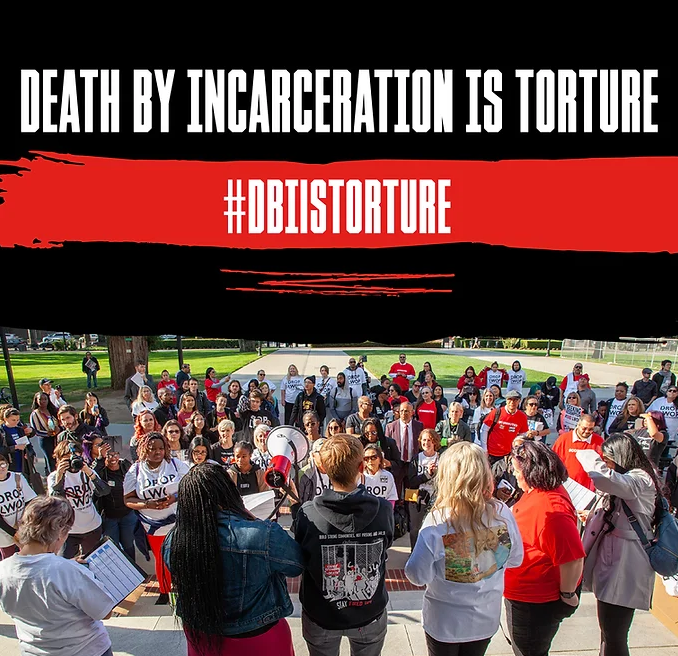Death By Incarceration is Torture - Sign the UN Complaint
US use of DBI sentences violates a range of international human rights

Through extreme sentences such as life without parole, life with parole, “virtual life,” and other term-of-years sentences that exceed life expectancy, the United States deprives individuals of their basic human right to hope for a future outside of prison. Incarcerated people, their loved ones, and advocates in the United States refer to this as “death by incarceration” - DBI - or “the other death penalty.”
According to the Sentencing Project, in 2020, 15 percent of the total prison population, 203,865 people, were serving life or virtual life sentences nationwide, and a study published in 2019 found that more people are serving DBI sentences in the United States than in the other 113 surveyed countries combined. Death by incarceration is the devastating consequence of a cruel and racially discriminatory criminal legal system that, far from addressing violence, harm, and its root causes, breeds more of the same. The impacts of DBI sentences are felt not only by the individual serving the sentence: DBI also has devastating ripple effects across the individual’s community.
The use of DBI sentences in the US violates several civil rights tenets:
- The disproportionate imposition of DBI sentences on racial and ethnic minorities, in particular Black and Latino/Latina people, violates the prohibition against racial discrimination.
- By arbitrarily and permanently sentencing individuals to prison terms that result in their premature death, DBI sentences violate the right to life.
- By depriving individuals of their right to hope and to rehabilitation, DBI sentences violate the international prohibition against torture and cruel, inhuman, and degrading treatment.
- The failure of DBI sentences to serve any legitimate rehabilitative/punitive purpose further demonstrates that such sentences are an impermissibly arbitrary deprivation of liberty.
On September 15th, dozens of criminal justice rights/rehabilitation organizations and advocates sent a complaint to the United Nations challenging the use of DBI in the United States. If you are part of an organization, or know of an organization, that would like to sign onto this letter, please visit this link to sign onto the complaint.
To read the full complaint sent to the United Nations, visit this link (opens in PDF).










